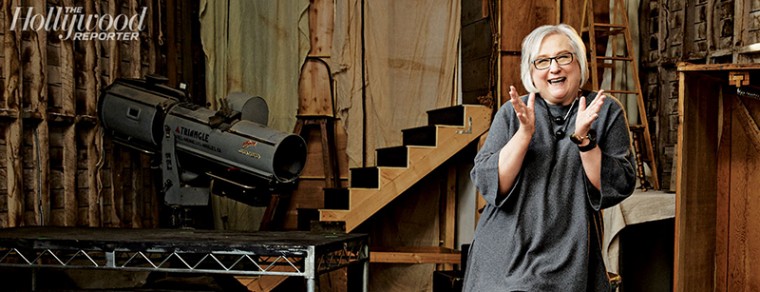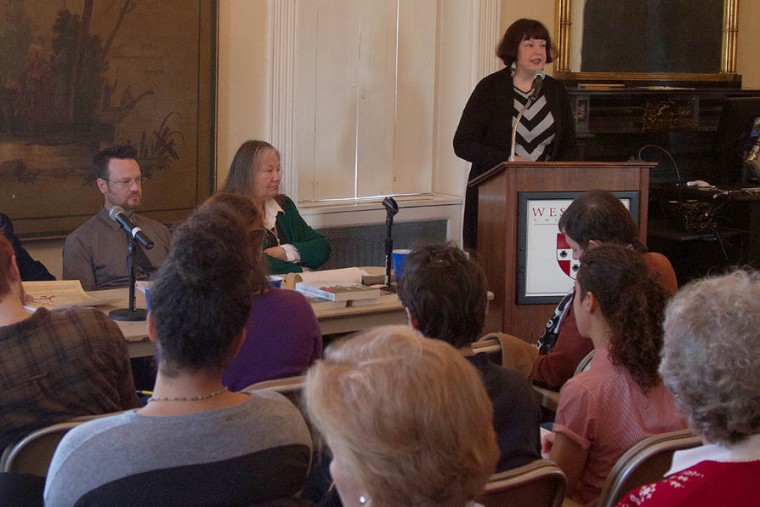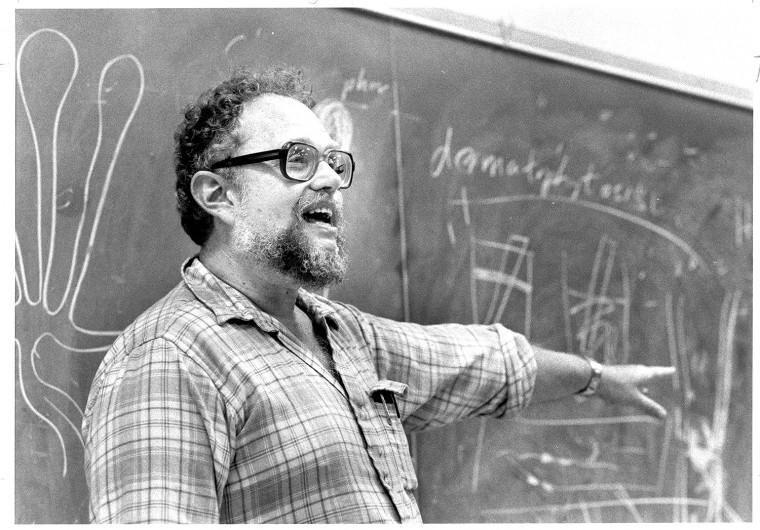On the release of the U.S. Department of Agriculture's latest dietary guidelines, The Washington Post looks back at the man responsible for starting it all: William Olin Atwater, Class of 1865 and later a chemistry professor at Wesleyan, who authored the very first dietary guidelines in 1894. According to the Post, at that time, the U.S. government provided basically no funding into nutritional research, and good nutrition meant simply getting enough to eat. But Atwater was a firm believer that nutrition was about more than simply staving off hunger. He framed the effort to figure out what foods are good for you as a moral…
Jon Barlow, professor of music, emeritus, died Dec. 15 at the age of 73. Barlow arrived at Wesleyan in 1966 after receiving his BA and MA from Cornell University. He arrived as the Music Department began its visionary phase and taught in the department for 34 years. Grounded in “Western” music history, Barlow expanded his horizons geographically and conceptually, constantly creating innovative courses, which attracted serious students. Many of his students went on to become established composers, performers, musicologists and ethnomusicologists. (more…)
Richard Grossman, professor of economics, and Masami Imai, professor and chair of economics, professor of East Asian studies, are the authors of an article published January 2016 in Explorations in Economic History. The article is titled "Taking the lord's name in vain: The impact of connected directors on 19th century British banks." Grossman and Imai considered the appointment of prominent, well-connected individuals (former members of Parliament and lords) to the boards of directors of banks in pre-World War I Britain, and investigated whether their presence enhanced equity value for bank shareholders. Surprisingly, they found that these individuals actually had negative effects on bank equity returns. The…
Gary Yohe, the Huffington Foundation Professor of Economics and Environmental Studies, appeared on the RT show "Boom Bust" to discuss the impact of climate change on business and the economy. (Yohe's interview begins at 3:45). He was asked what sectors of the economy are being affected the most by the forces of climate change. "Agriculture comes to mind. It's not just hurricanes and extreme precipitation events—although that seems to be happening along the East Coast. Any [real estate or] infrastructure that's located near the coast line or near a river, for that matter, is in increasing vulnerability. But it's more than that. It's [...] agriculture,…
A hundred years ago, Christmas in Russia looked a lot like Christmas in America, with trees, presents and twinkling lights. All that changed with the Russian revolution, Assistant Professor of History Victoria Smolkin-Rothrock told NPR in an interview about the history of the Yolka, or New Year's tree. "The tree comes to be seen as a symbol of both the bourgeois order, which is one kind of class enemy, and of religion in particular, which is another kind of class enemy," explains Smolkin-Rothrock. "There are very explicit statements that essentially unmask the Christmas tree for the class symbol that it is. It becomes clear that one does not…
The campaign season so far has seen a significant increase in the volume of GOP presidential ads, and an explosion in advertising by super PACs and other outside groups. Outside groups sponsored 81 percent of ads between January 1–December 9, 2015—a 71 percent increase over 2011, and 12,000 percent increase over 2007. This was the finding of an analysis by the Wesleyan Media Project, its first of the 2016 election cycle. The "remarkable growth in campaign activity by independent groups" it found was covered by The Washington Post, NPR, The Wall Street Journal, Reuters, USA Today, Vox and others. Notably, the report found little…
The historic global deal on climate change reached by 190 countries in Paris will help the economy, not hurt it as critics argue, writes Huffington Foundation Professor of Economics and Environmental Studies Gary Yohe in an op-ed in The Hartford Courant. "The evidence in the peer-reviewed economic literature, as well as real experience around the world and in the United States, shows that climate action not only protects public health by reducing pollution, but also protects the economy from extreme weather shocks and other complications that have and will arise from a changing climate. The sooner we act, the more money…
Jeanine Basinger, Corwin-Fuller Professor of Film Studies, was recently featured in a Hollywood Reporter article “The Professor of Hollywood,” by film historian and best-selling author Sam Wasson ’03, who studied with Basinger at Wesleyan. The magazine brought together 33 of her former pupils who work prominently in the film industry for “an A-list class reunion” photo—and several of them talk about how Basinger inspired them, encouraging their self-expression while also sharing with them her love for the medium. In the article, Basinger discusses how and why she came to devote her life to the study of film and how working…
On Dec. 5, Wesleyan students, faculty and the local community gathered for a two-hour discussion on "Indigenous Middletown: Settler Colonial and Wangunk Tribal History." The event was sponsored by the American Studies Department, the Center for the Americas, and the Allbritton Center for the Study of Public Life. J. Kehaulani Kauanui, associate professor of anthropology, associate professor of American studies, coordinated the event, which stemmed from her Service Learning course, Decolonizing Indigenous Middletown: Native Histories of the Wangunk Indian People. The class is in partnership with the Middlesex County Historical Society. (more…)
A collaborative project by Assistant Professor of Music Roger Matthew Grant was listed in New York Times' co-chief art critic Holland Cotter's Top 10 list of Best in Art. Grant served as the dramaturg and also performed in the installation of "The Magic Flute," a revamped version of Mozart's original at New York University's Steinhardt School of Culture, staged by 80WSE Gallery and the Cheap Kollectiv of Berlin. "This was theater for mind and senses," writes Cotter, describing it as "packed with magic." Part one of "The Magic Flute," an opera in six steps, was in open rehearsals Dec. 1–5. Part two, a film…
William "Bill" Firshein, the Daniel Ayres Professor of Biology, emeritus, died Dec. 7 at the age of 85. Firshein arrived at Wesleyan in 1958 after receiving his BS from Brooklyn College and his MS and PhD from Rutgers University. He taught at Wesleyan for 47 years before retiring in 2005. Firshein was an active scholar who was awarded research grants totaling more than $2 million over his career. He investigated the molecular biology of DNA replication cell division in Bacillus subtilis and Escherichia coli and their plasmids. In his most recent book, The Infectious Microbe, published by Oxford University Press…
Professor of Anthropology Gina Athena Ulysse is the author of two new essays on The Huffington Post. In "Pedagogies of Belonging," she writes about her experience working with students of color as they face the realities of structural racism, and she challenges institutions to go beyond rhetoric, to face up to the difficult challenges of moving onto a path of greater belonging. The essay begins: There is a conversation Black faculty often have with Black students that we rarely mention in public, let alone in mixed company. The tone of this exchange differs to some extent if the student are U.S.…





